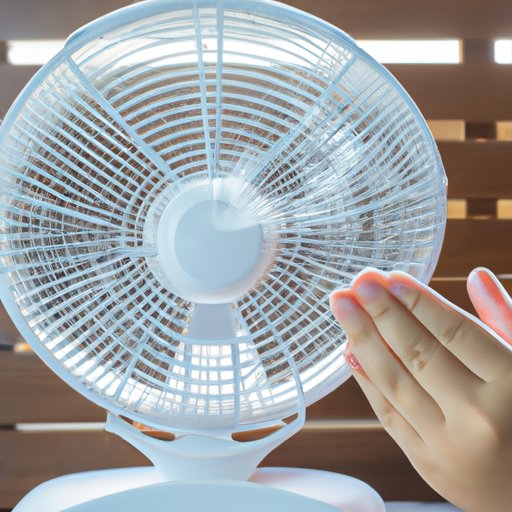Introduction
Sleeping with a fan is a common practice for achieving a cool and comfortable environment during the summer months. Fans are an inexpensive way to keep air circulating in a room, and they can be beneficial in regulating temperature and helping you get a good night’s sleep. However, there are some potential risks associated with sleeping with a fan that may lead to sore throats or other respiratory issues.
Negative Effects of Sleeping with a Fan
The primary negative effect of sleeping with a fan is the increased air circulation in the room. This can cause dryness in your throat and nasal passages, leading to irritation and soreness. Additionally, if the fan is blowing directly on your face, it can also cause dryness in your eyes and skin.
Another potential risk of sleeping with a fan is that it can bring in airborne contaminants from outside. These contaminants can include dust, pollen, pet dander, mold spores, and other pollutants. Inhaling these particles can trigger allergies or asthma symptoms, as well as sore throats and other respiratory problems.
Could Your Fan Be Making You Sick?
If you find yourself waking up with a sore throat after sleeping with a fan, it could be due to several factors. One possibility is that the fan is blowing particles of dust, pollen, or other allergens directly into your face. Another possibility is that the fan is recirculating contaminated air from inside the room, such as mold spores or volatile organic compounds (VOCs). If you have pets in the house, their dander could also be getting circulated by the fan.
Additionally, fans can generate static electricity, which can attract small particles from the air. These particles can then be inhaled and cause irritation in the throat and lungs.

Solutions for Preventing Sore Throats
If you want to continue sleeping with a fan but want to avoid sore throats, there are a few steps you can take. First, adjust the speed and direction of the fan so that it is not blowing directly on your face. This will help reduce the amount of air circulation in the room and eliminate any potential allergens that may be coming in from outside.
Second, make sure to clean the fan regularly to reduce the amount of allergens and dust that may be circulating in the air. Vacuum the blades and use a damp cloth to wipe down the body of the fan. By doing this, you can reduce the amount of contaminants in the air.
Finally, you may want to consider using an air purifier or a humidifier in the room. Air purifiers can help remove dust, pollen, and other allergens from the air, while humidifiers can help add moisture to the air and reduce dryness in your throat.
Conclusion
Sleeping with a fan can be beneficial in creating a comfortable environment, but it can also lead to sore throats and other respiratory issues. The primary culprit is air circulation, which can cause dryness in your throat and nasal passages. Additionally, fans can circulate allergens and other contaminants, which can irritate your lungs and throat. To prevent sore throats, make sure to adjust the speed and direction of the fan, clean it regularly, and utilize air purifiers and humidifiers.


